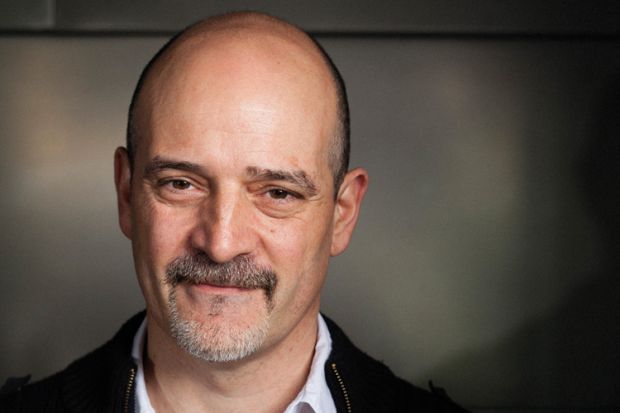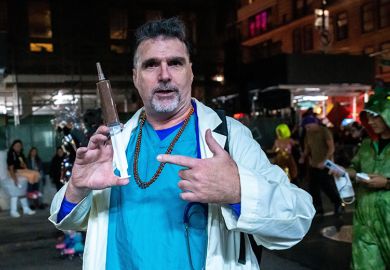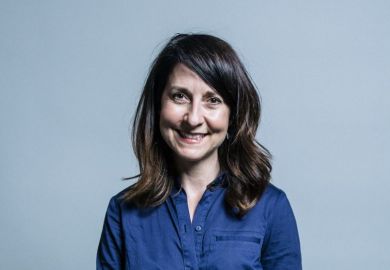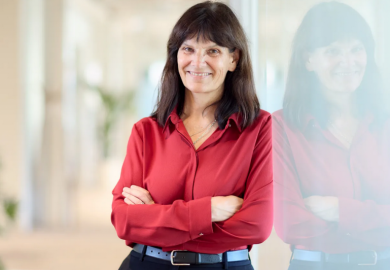Dominique Steiler developed the Center for Personal and Managerial Development at Grenoble School of Management and has been a research chair in mindfulness, well-being at work and economic peace for the past three years. For the 2015-16 academic year, he moved to Princeton University as a research scholar at the Center of Theological Inquiry. He is currently a member of a research project entitled Inquiry on the Societal Implications of Astrobiology, in association with Nasa and funded by the John Templeton Foundation.
Where and when were you born?
5 November 1963 in Metz, France (near the German border).
How has this shaped you?
I was born only 18 years after the end of the Second World War. The majority of my family is German-speaking. At a time when many French-speaking compatriots insulted my father simply because of his mother tongue, he spent a lot of time educating us on the importance of not judging others, avoiding useless anger and developing openness. As a result, my sisters and I developed a very strong interest in otherness and respect for human beings beyond conflict. It seems to me that my life, without having voluntarily chosen this path, was in fact dedicated to this idea.
What was it like to be a fighter pilot in the French armed forces?
Becoming a fighter pilot was really a boy’s dream, and even more so being on an aircraft carrier. Flying those jets is just such an extraordinary experience. Your sense of living is transformed when high speeds change your relationship to distance and time. Beyond flying, this experience made me confront life and death, both my own and others. The relationship between power and vulnerability is so strong. I believe that the greatest experience is to have had such a feeling of power and at the same time a clear awareness of my weaknesses and limits.
Your research is in a field that’s quite difficult to define. How would you sum it up?
I would say I am a specialist of management, occupational behaviour and leadership. However, I see myself as multidisciplinary. To understand the great challenges of the business world, we need a holistic approach.
How important is mindfulness to our everyday lives? Is it something that academics should be practising regularly?
Current studies always present mindfulness with a Buddhist origin. I undertook a historical analysis of the topic and understood that mindfulness is present, in fact, in all the major currents of thought. It is extremely important for professors in the classroom but also in their research work. As with any behaviour, mindfulness occurs if you practise regularly. It is not a tool, but more a way of living.
You’re taking part in a research project for Nasa to explore the “origins and extent of life in the universe”. What is your role in this?
Nasa asked the centre in which I am a research scholar for my year at Princeton to think about the societal implications of astrobiology, the study of the origins, evolution, distribution and future of life in the universe. The central idea is to bring scientists searching for life in the universe into dialogue with scholars in the humanities who interpret the meaning of life, each informing the other on the science and societal implications of astrobiology. Finding even microbial life in the universe will have a profound impact on our understanding of human life.
Do you think humans are alone in our universe?
I just hope that we are not alone. [Italian physicist Enrico] Fermi’s paradox is still intriguing for me. During a conversation with some peers, he developed the interesting paradox between high estimates of the probability of the existence of extraterrestrial civilisations, billions of stars and Earth-like planets often far older than ours, and the lack of evidence for such civilisations.
How much is an undergraduate degree worth?
It is of the utmost importance. However, I sometimes feel angry when people expect their degrees to be no more than a preparation for a future job. I think that universities, colleges and schools also have the role of educating students to become citizens and adults able to take on their responsibilities as well as enjoy and praise the beauty of life.
Have you had a eureka moment?
Yes! One significant one: “I recognise and accept that a substantial part of my efforts to succeed in my life were actually an attempt to be loved.”
What keeps you awake at night?
Almost nothing, except when I suspect or know that one of my children is in trouble.
What do you do for fun?
I still love to travel. I first travelled abroad alone when I was 15 and since then I've never stopped. My greatest pleasure was to have my own prejudices shaken. I still love those moments when you are thinking what a good boy, man, professional, etc you are and suddenly you become aware of your biases and self-importance.
What’s your biggest regret?
A very difficult question as it sounds too “black or white” to me. I would love to have had the opportunity to fly for a longer period; I regret that I only discovered poetry late in life; but above all, I regret that I did not have the courage, possibility, education or authorisation to say to my father how much I loved him before he died.
What are the best and worst things about your job?
The best? I love to be with people, and I love to learn. The worst? I hate being involved in power games.
Appointments
John Bancroft has been appointed director of the National Physical Laboratory Northern England, a joint appointment between the NPL and the University of Huddersfield. Professor Bancroft, who joins from Auckland University of Technology where he is industry engagement manager, took up his position on 4 January. The NPL, the UK’s National Measurement Institute, is creating a series of regional hubs across the UK. In his role, Professor Bancroft will address the needs of companies through a blend of accessible, industry-relevant collaborative research, products and services.
Maxine Penlington has begun her role as chair of governors at Glyndwr University, and believes that the institution is “well placed” to grow in size and strength in the coming years. Ms Penlington is the former chief operating officer at Birmingham City University. “I am confident that the university has a bright future ahead of it and [am] delighted to be in at the beginning as Glyndwr embarks upon this next exciting phase in its long history,” she said. “I very much hope to see Glyndwr…supporting the aspirations of individuals, businesses and organisations of all kinds through education and training and the generation and transfer of knowledge.”
Robert Gordon University has announced two key appointments in its Oil and Gas Institute. Peter Howell and Kevin Docherty have joined as drilling and wells excellence manager and commercial manager, respectively.
The University of Oxford has announced two professorships. Paul Klenerman has taken up the Sidney Truelove professorship of gastroenterology in the Nuffield department of medicine. Bo Rothstein, August Röhss chair in political science at the University of Gothenburg, has been appointed to the position of professor of government and public policy at the Blavatnik School of Government. He takes up his role on 11 January.
POSTSCRIPT:
Print headline: HE & me
Register to continue
Why register?
- Registration is free and only takes a moment
- Once registered, you can read 3 articles a month
- Sign up for our newsletter
Subscribe
Or subscribe for unlimited access to:
- Unlimited access to news, views, insights & reviews
- Digital editions
- Digital access to THE’s university and college rankings analysis
Already registered or a current subscriber?




